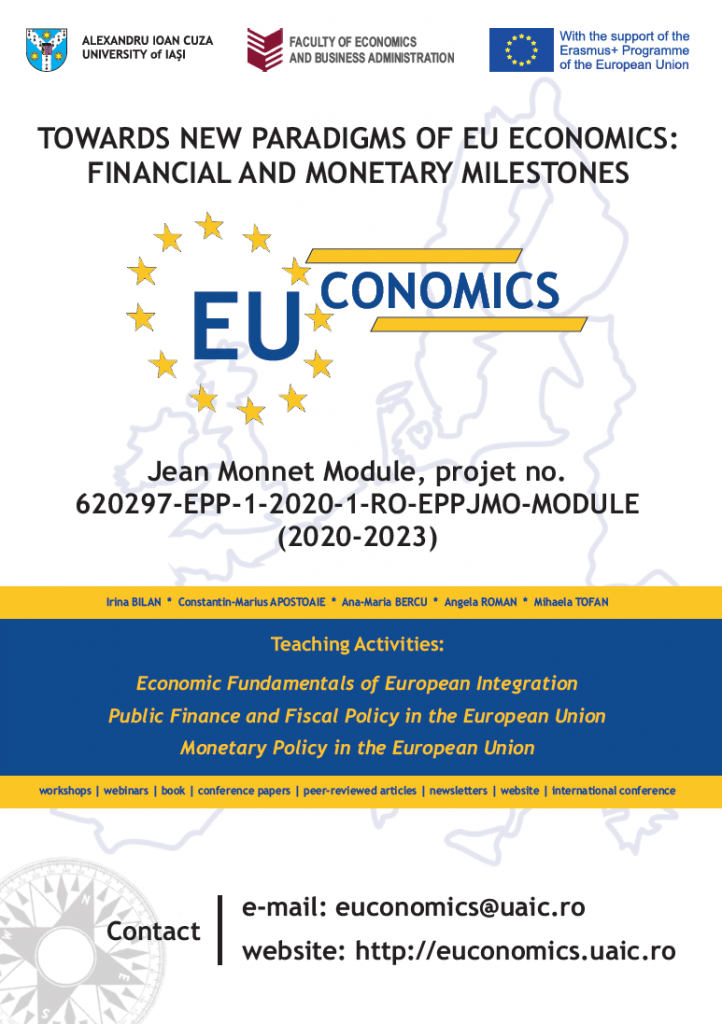This project is funded by the European Union. Views and opinions expressed are however those of the author(s) only and do not necessarily reflect those of the European Union. Neither the European Union nor the granting authority can be held responsible for them.
The support is provided under the ERASMUS+ Program of the European Union (Jean Monnet Module “Towards New Paradigms of EU Economics: Financial and Monetary Milestones”, EUCONOMICS, grant decision number 620297 / 17.09.2020).
AIM The project seeks to enhance awareness regarding how the EU works and what it does, especially through its financial and monetary policies, for the strengthening of the European integration and promoting a sustainable economic growth.
OBJECTIVES In line with the general objectives of the Erasmus+ Programme and JM activities, the project assumes as specific objectives to:
- Deliver 3 new courses that promote EU studies (focused on European integration and the financial and monetary policies of the EU) to min. 105 undergraduate students
- Complement the existing curricula of the faculty on finance and monetary issues with relevant and innovative content related to specific European financial and monetary integration issues
- Create a favourable working environment for supporting young researchers and academics to develop and disseminate high-quality teaching and research activities in the field of EU integration
- Encourage the exchange of ideas and cooperation between academics, policy-makers, business representatives, and the general public so as to instil interest in the EU and its core values.
ACTIVITIES The project team members will deliver three new courses; elaborate a portfolio of teaching materials, among which a book on the topic of the project; spread information of key EU developments through a bi-annual newsletter; organize 3 workshops, 3 webinars and an international conference; conduct innovative research activities, resulting in papers presented at international conferences (at least 2/year) and/or published in conference proceedings and journals (at least 3); widely disseminate information on EU integration, on the project and its activities, on the module website or during the promotional campaign.
BENEFICIARIES The project addresses a wide range of direct and indirect beneficiaries (students, academics, policy makers, business environment, the general public) and has high academic added value through the new courses it introduces, the research it fosters and the events.

